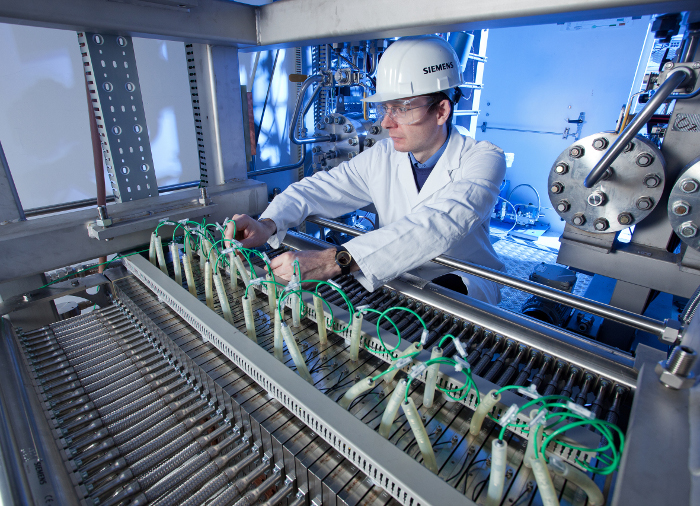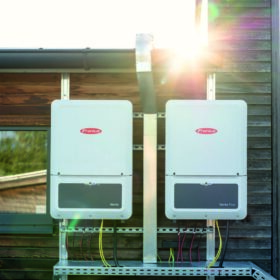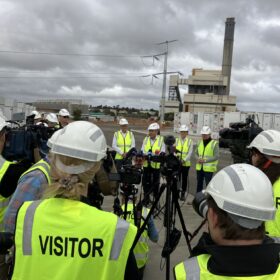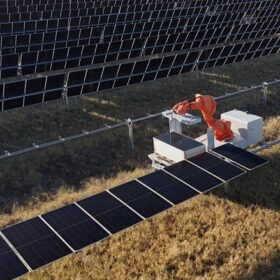Energy exports could remain an important part of the Australian economy, in a plan unveiled by the Federal Opposition Labor Party today. The National Hydrogen Plan aims at accelerating the development of green hydrogen export projects, businesses and technologies through a number of funding initiatives to be executed by the Clean Energy Finance Corporation (CEFC) and the Australian Renewable Energy Agency (ARENA).
Elaborating on the hydrogen plan on ABC Radio National, the Shadow Minister for Climate Change and Energy Mark Butler said that Japan is leading the drive to deploy green hydrogen in its industry and is a prime export market.
“Japan, a bit like the LNG industry in the 1970s is really leading the drive in this industry globally, but Germany, China, Korea and many others as well are exploring opportunities across industries,” Butler told the ABC. “In manufacturing, for hydrogen to replace for example, coal in steelmaking and many other manufacturing technologies [is possible]. Particularly in transport… in heavy vehicles so trucks, buses and trains that will be very difficult to power with battery electric vehicles hydrogen is seen as a great opportunity.”
Labor’s National Hydrogen Plan includes six measures. Most notably, if successful at this year’s federal election the party will direct the CEFC to fund $1 billion in clean hydrogen projects, and use $40 million of the clean bank’s Innovation Fund to finance post R&D-stage hydrogen technologies and businesses. The investment from the CEFC will be drawn from the additional $10 billion Labor plans to make available to the state-backed clean energy investment body – in its energy policy announced in late 2018.
ARENA too will be tasked with providing $90 million in grants to hydrogen R&D, “demonstration and pre-commercial” technologies, as a part of the plan. It will also be directed to open a $10 million funding round for hydrogen refuelling stations and infrastructure.
Queensland coal hub Gladstone is targeted to become a National Hydrogen Innovation Hub, with a $3 million in funding, in an acknowledgement of the need to transition coal communities towards clean energy economic opportunities. Regulatory reforms to foster hydrogen usage in existing gas infrastructure is also a part of the policy.
The plan also nods towards Carbon Capture and Storage (CCS) for the production of “blue and brown hydrogen”.
The Clean Energy Council (CEC) has welcomed the plan, noting that Australia is well positioned to supply green hydrogen demand.
“Labor’s National Hydrogen Plan could create a new export industry powered by our world-class wind and sunshine, which may one day rival resource commodities such as liquid natural gas,” said CEC Chief Executive Kane Thornton in a statement. “It makes sense to take advantage of the expertise which has been developed this decade in our premier scientific organisation, combined with the investment nous of the Clean Energy Finance Corporation.”
In his ABC interview, Labor’s Butler said that the work of the CSIRO is helping to make clean hydrogen exports a reality.
“Those incredibly clever men and women from CSIRO have developed a membrane that means we can now store hydrogen and liquid ammonia, [and] ship it off to export destinations,” said Butler. “This membrane that CSIRO have developed extract[s] the hydrogen from the liquid ammonia at the source, at the point of use. Dealing with that barrier that people really for many decades thought was going to be insurmountable.”
Butler also pointed to work by the International Energy Agency that pointed to the clean hydrogen export opportunities to the Australian economy. He noted that Japan plans to make the 2020 Tokyo Olympic Games the ‘hydrogen Olympics’.
This content is protected by copyright and may not be reused. If you want to cooperate with us and would like to reuse some of our content, please contact: editors@pv-magazine.com.









1 comment
By submitting this form you agree to pv magazine using your data for the purposes of publishing your comment.
Your personal data will only be disclosed or otherwise transmitted to third parties for the purposes of spam filtering or if this is necessary for technical maintenance of the website. Any other transfer to third parties will not take place unless this is justified on the basis of applicable data protection regulations or if pv magazine is legally obliged to do so.
You may revoke this consent at any time with effect for the future, in which case your personal data will be deleted immediately. Otherwise, your data will be deleted if pv magazine has processed your request or the purpose of data storage is fulfilled.
Further information on data privacy can be found in our Data Protection Policy.